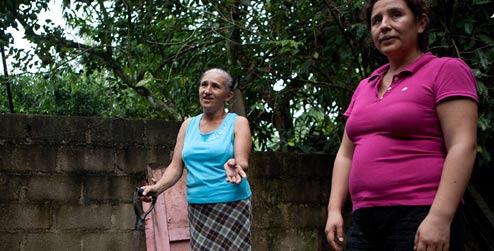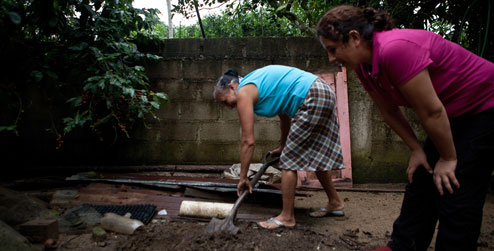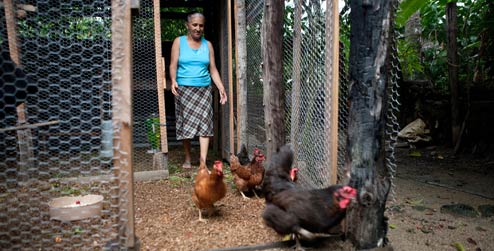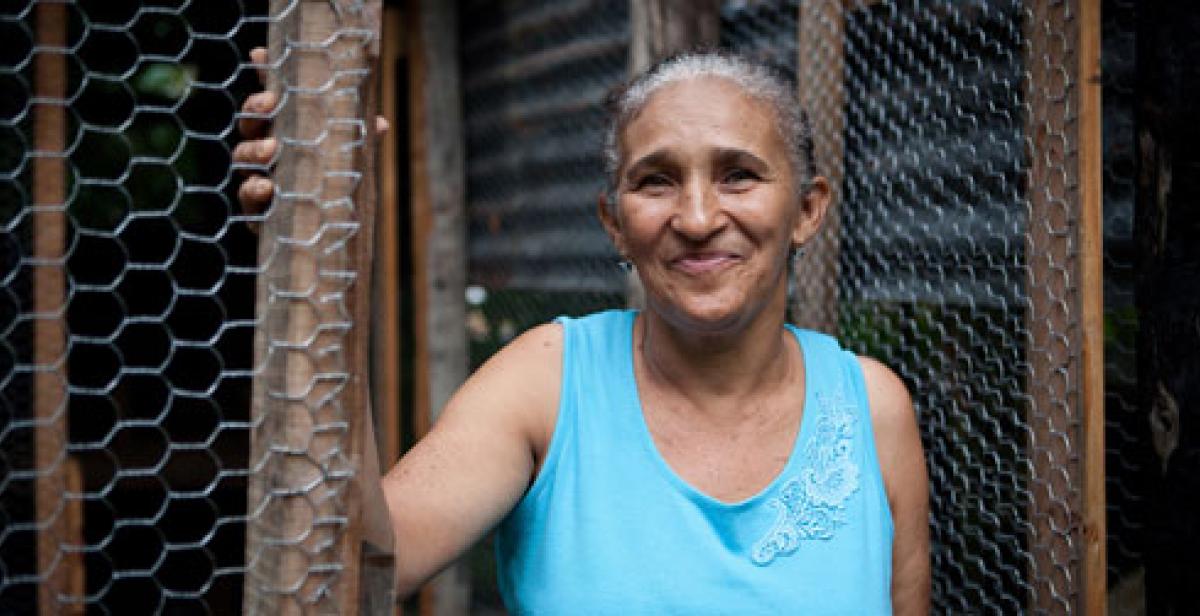Milagros Gomez (above) has always done her best to help others. She has funded herself to train as a community nurse – not because she will earn anything from it, but because “it is a rewarding role and I am committed to helping the most vulnerable”.
“I do not mind that I cannot find salaried work. I’m very happy and satisfied with what I do as a health promoter,” she says.

Thanks to training from Progressio’s Karina Cuba (above right), Milagros is able to advise others on food safety and nutritional health, and how to grow more and better quality food.
“The communities in the border area are forgotten by all, especially the government,” she says. “I want to do what I can to support more people, especially families with children.”
One practical way is through improvements in the quality and variety of crops that people grow in their ‘home gardens’. Milagros is one of 24 women who Karina has trained in sustainable food production and management of their home gardens.

Milagros has also been helped with building materials and advice to construct a chicken coop. “I’m really proud of the effort I’ve made to build this henhouse,” she says. “It’s one of the larger chicken coops in the area and many people from the community now come to me and ask for advice.”
Milagros received 10 hens through the project’s ‘revolving fund’ and will breed from the hens and return 10 chicks to the fund, to be given to another farmer.

“It means I don’t have to buy eggs: there’s enough for my family, and I can even give eggs to my neighbours or exchange them for other products,” she says.
“Many other women in the community are interested in raising chickens, because they can see the benefits of it,” says Milagros.
“It’s so important to continue this work,” she says. “We must continue to support rural women’s associations, which receive little support and are usually excluded or marginalised.”
Photos © Fran Afonso/Progressio
 Read more stories from our food security project
Read more stories from our food security project
Return to Food for a better future home page



